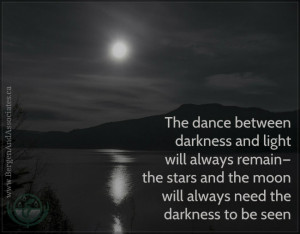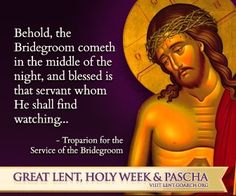
Darkness gets a bad rap. It’s often associated with evil, whereas light is touted as good, especially in literature and drama. Bad guys often wear black; heroes sport white. And when it comes to mental health, someone who is depressed might describe their feelings as being in a “dark mood” or “in a deep dark hole.” Our parents’ generation didn’t cast it quite as darkly, saying, “I’m feeling blue.” And of course with music, that translates to the blues. But no one ever says, when we are depressed, I’m feeling light.
What color is anxiety? I’ve been anxious quite a bit lately, about a number of things. That anxiety plus an overly active mind have kept me awake a couple of nights. Insomnia isn’t something I experience regularly, thank God. But when it hits, it’s exhausting. Sometimes I can feel my heart beating as I lay still trying to sleep, anxious thoughts seeming to flutter around the room like so many birds. I wouldn’t describe the feeling as dark, but more like murky—lacking clarity.
Yesterday I read an article in The Atlantic by Kathryn Harrison, author of The Kiss and other works of nonfiction and fiction. (The Kiss is excellent, but a little dark, because Harrison wrote it about the incestuous affair she was forced to have with her father.) The article is really about writing (she not only has several published books but she teaches writing) but it’s also about darkness, which she embraces. She reflects on a poem by Joseph Brodsky, “On Love,” especially this line:
For darkness restores what the light cannot repair.
The darkness Brodsky and Harrison are talking about here has to do with our unconscious lives, and especially the dream world, where many believe healing can take place. As Harrison explains:
Many human transactions take place in this realm of darkness. On unconscious planes, through dreams—even, on some level, in people’s ability to communicate without words. By darkness, I don’t mean black, as in lacking light. I mean dark: the aspect of life that is not accessible through our conscious processes of analysis…. There’s huge redemption in the fact that there is a world that is dark, or opaque, to conscious life. The realm of darkness that heals and restores, and allows memory to bind up, provides the present with a kind of solace that is almost holy. The line is about the holy and generative properties that exist within us. And so, I think the line is about God. A realm that God inhabits.
 I believe that God inhabits the darkness. There are many stories in the Old Testament, especially, where God met the prophets of old in the darkness. And of course He went down into Hades to free the captives. He doesn’t just dwell in light.
I believe that God inhabits the darkness. There are many stories in the Old Testament, especially, where God met the prophets of old in the darkness. And of course He went down into Hades to free the captives. He doesn’t just dwell in light.
It’s Holy Week for Orthodox Christians, and the services at my church this week could be called dark. The music is often in a minor key, the tone and atmosphere itself subdued. The lights are dimmed, the nave mostly illumined by candles, which cast a muted brightness on the gold leaf of the icons behind them, but also dark shadows. Even the priests’ and deacons’ vestments and the cloths covering the altar and icon stands are dark, having replaced the usual gold and white coverings. Is all this darkness evil? No, it’s a necessary part of our spiritual—and emotional—journey through Christ’s passion. And not unlike the unconscious world described by Harrison, this atmosphere can “heal and restore” and provide “a kind of solace that is almost holy.”
I’m going back there tonight. To the darkness of the church service. I’m going to try to let go of my anxiety through the unconscious work of chanting and prayer, breathing in the incense that reminds us that our prayers rise to God from the darkness of our broken lives.